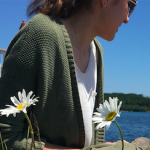This summer we are catching up with former volunteers and interns of the Bahá’í Chair. Our first post comes from Julia Thomas, who graduated in May 2019.
Hi everyone!
My name is Julia Thomas and I am a former volunteer for the Bahá’í Chair for World Peace. I started volunteering with the Bahá’í Chair through another volunteer organization, the College of Behavioral and Social Sciences (BSOS) Ambassadors. As a BSOS Ambassador, one of the organizations we worked most closely with was the Bahá’í Chair. I loved the events and the Chair for their focus on humanitarianism for all humans and emphasis of critical thought and discussion on several key tenets. After the first couple of lectures I attended as a BSOS Ambassador, I became one of the volunteer writers for the Bahá’í Chair for World Peace Blog so I could contribute more to the program.
I graduated in May 2019 with a BS in Psychology and minors in MLAW and Neuroscience. During my senior year, I took a 400-level psychology class on addictive behaviors. The content was utterly fascinating and I learned a lot about a unique patient population. After I graduated, I began applying to jobs around Maryland. One of those jobs was at Mountain Manor Treatment Center, for a clinical research assistant position examining different interventions for patients with substance use disorders. I was offered the position and started working there in July 2019 and have been there ever since!
As a clinical research assistant at a substance use treatment facility, I am involved in a number of different studies examining interventions aiming to improve different aspects of substance use treatment. As of right now, there are five studies being run by our tight-knit research team, four of which I have direct involvement with and responsibility for. One of our studies is a behavioral intervention for participants in outpatient treatment, with the goal of examining the effect additional support can have on treatment outcomes. YORS, or the Youth Opioid Recovery Support, is for young adults, ages 18-26, diagnosed with OUD. We have been working on different iterations of this intervention for several years. In the current version, we are examining pilot refinements to a standard procedure involving assertive outreach, family involvement, home delivery of medication, and compensation management.
Through my position at Mountain Manor, I’ve also been privy to a lot of great opportunities outside of my direct responsibilities. Several of our research projects involve individual, group, and family therapy, and I have worked closely with our research therapist and PsyD externs over the years. Observing them, as well as our team’s clinical psychologist and psychiatrist, has helped me further my clinical interests. With help from my supervisor, I applied and was accepted to be an Alcohol and Drug Trainee Counselor (ADT) through Maryland’s Board of Physicians and Counselors. As an ADT, I work under supervision to help individuals and groups with their treatment plans, as well as discuss research surrounding necessary clinical skills.
Since I’ve been working at Mountain Manor, I’ve also been continuing to take classes at UMD. During my senior year at school, I realized that I wanted to pursue a medical degree in psychiatry. Given that my realization was a bit later than most people’s, I still had a decent amount of work in front of me before I would be able to apply to medical schools. UMD has a program called Science in the Evening (SIE), specifically designed for people with interest in medical or dental schools that work during the day. The program offers classes for members of the SIE program later at night, so that they can avoid conflicts between work and class schedules. This past Spring 2021 semester, I finally finished my last prerequisite and am currently working on my medical school application for 2022 and studying for the MCAT!
Outside of my work and academics, I’ve also been actively pursuing several volunteer activities. Crisis Text Line is an online platform that links volunteer counselors with texters in crisis. I began volunteering with them soon after graduating and learned a lot about helping people in different kinds of emotional emergencies. Another one of my volunteer positions is as an Emergency Medical Technician in Anne Arundel County. After having to navigate COVID for a few months, I completed my class in January and gained my NREMT certification shortly thereafter. Over the past few months, I have been continuing my training on my firehouse’s ambulance to become fully certified. I’ve also volunteered in the University of Maryland Medical Center’s Shock Trauma Center, working to replenish the trauma resuscitation units with the appropriate medical equipment.
Though it’s been a couple of years since graduating and working with the Bahá’í Chair, the lectures and events have stuck with me as I progressed towards my goals. Working with the Bahá’í Chair helped me cultivate my values and the courage to discuss them with others, particularly a desire for equal access to quality health care, that I know will last throughout medical school and beyond.
About the Author:
 Julia Thomas graduated from the University of Maryland, College Park in May 2019 with a Bachelors of Science in Psychology and minors in Neuroscience and Law. She is currently a clinical research assistant at Mountain Manor Treatment Center, a substance use treatment facility in Baltimore, MD providing inpatient and outpatient services. Alongside her research assistant position, she is a volunteer EMT and Alcohol and Drug Trainee Counselor. Her goal is to attend medical school for psychiatry and neuroscience.
Julia Thomas graduated from the University of Maryland, College Park in May 2019 with a Bachelors of Science in Psychology and minors in Neuroscience and Law. She is currently a clinical research assistant at Mountain Manor Treatment Center, a substance use treatment facility in Baltimore, MD providing inpatient and outpatient services. Alongside her research assistant position, she is a volunteer EMT and Alcohol and Drug Trainee Counselor. Her goal is to attend medical school for psychiatry and neuroscience.
